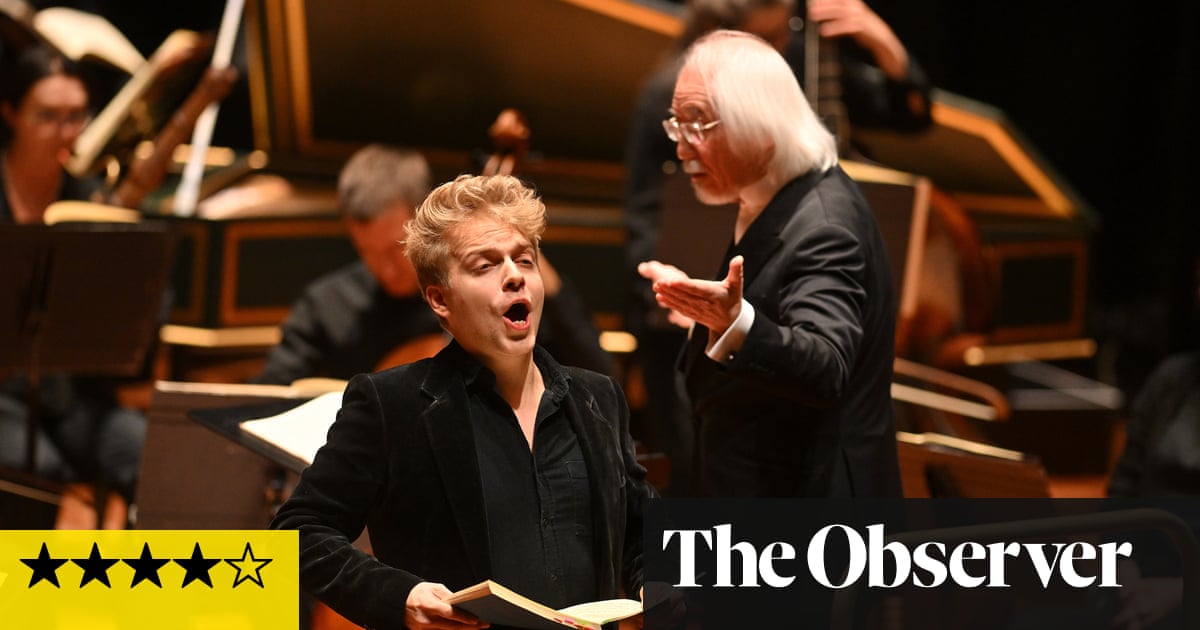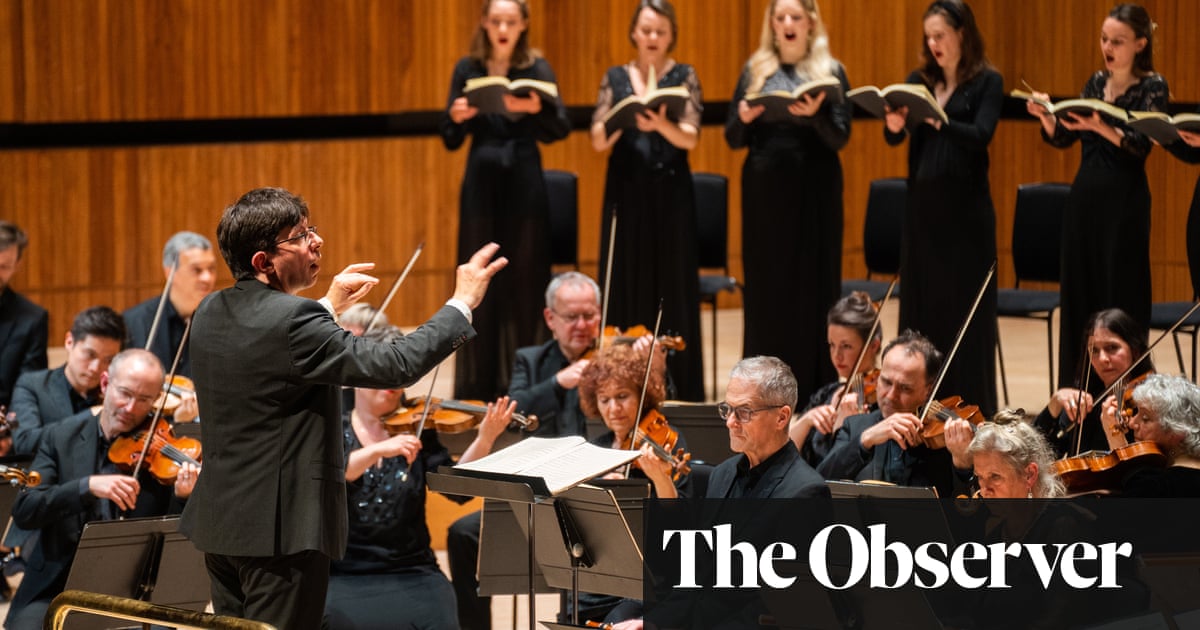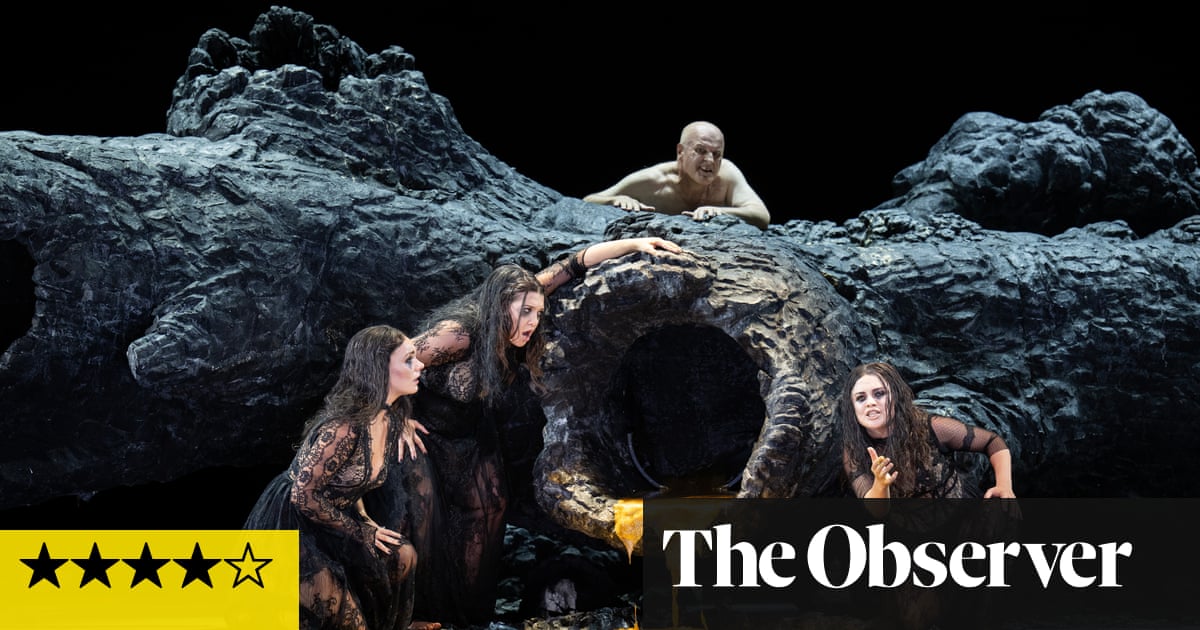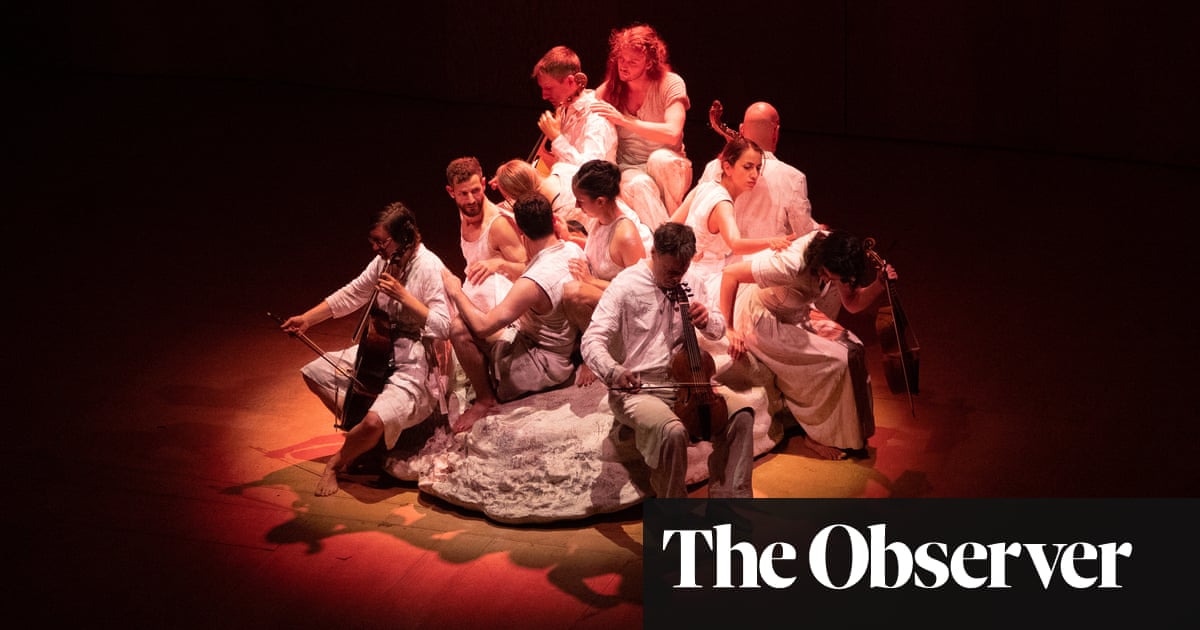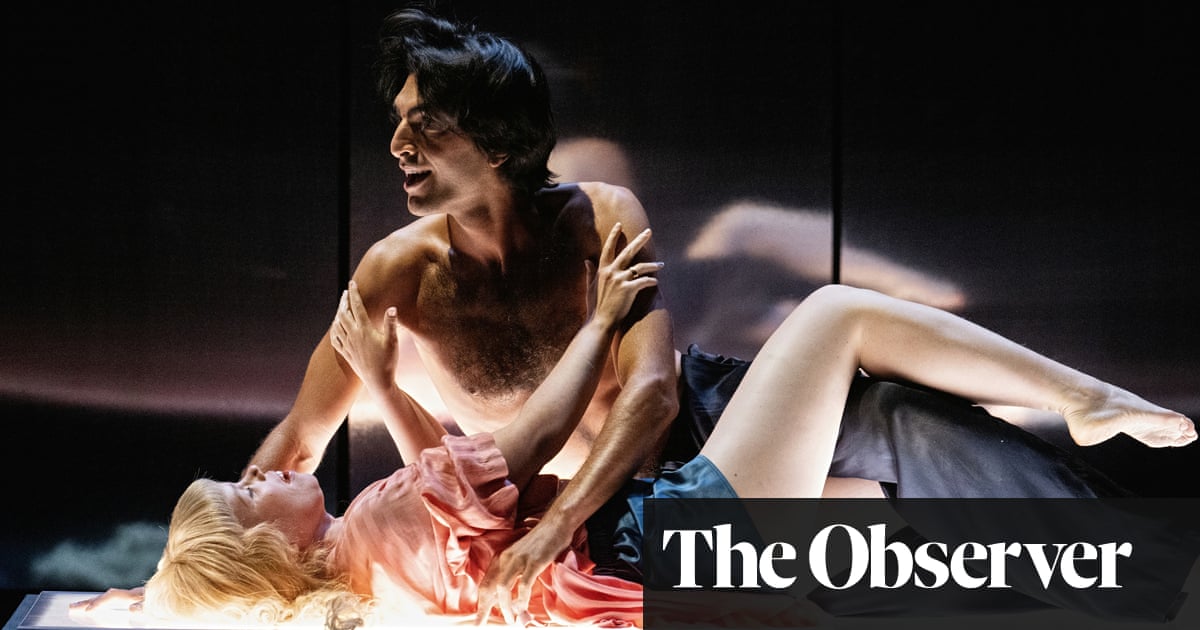
he inexhaustible magic of the classics – of any culture or time – lies in how they provide source material for those who follow after. Think of Picasso’s reworkings of Velázquez’s Las Meninas: part homage, part new creation. Henry Purcell and his librettist, Nahum Tate, in their short opera Dido and Aeneas (1689), weren’t alone in plundering Virgil’s Aeneid for the story of the Queen of Carthage and the Trojan hero, condemned to abandon her to pursue his destiny as founder of Rome. The Belize-born British composer Errollyn Wallen has taken up the tragedy of Dido, working with the librettist Wesley Stace to explore what happened next.
The result is Dido’s Ghost, a co-commission by the Barbican, Buxton international festival, Dunedin Consort and Mahogany Opera, given its world premiere last Sunday, with performances at Buxton and Edinburgh yet to come. Rather than creating a separate work, Wallen has spun her own, musically fluid web around Purcell’s masterpiece. We hear the original clearly, darkly, transfigured, not at all. The period-instrument Dunedin Consort, conducted by John Butt, play alongside electric guitar, drum kit, steel pans, marimba, the sound worlds of baroque and 21st century ricocheting back and forth, to beguiling, startling effect. The retelling, this time with Ovid as another classical source, takes us into Aeneas’s world. Dido’s sister, Anna, arriving as refugee, has a disturbing effect on Aeneas’s jealous wife, Lavinia (strikingly sung by Allison Cook). Remembrance is the touchstone.
With several operas to her name, Wallen has a sharp feel for drama, prising open the emotional shell of Aeneas, superbly portrayed and sung by the bass baritone Matthew Brook. Nardus Williams’s Belinda, enhanced by her simple, balletic movements, Isabelle Peters’s shadowy Dido-Anna, Henry Waddington’s Sorcerer and an excellent chorus complete the lineup in a first-class performance, directed in a semi-staging by Frederic Wake-Walker. Anyone who insists on Purcell pure might find the mix too challenging, yet this new work is bold and moving, a piercing reminder of how the past haunts the present. Dido’s celebrated lament is heard, but not as you expect it. With a conviction that transfixes, Aeneas himself now sings the plaintive, tolling utterance, to devastating effect.
The rest of the past week belongs to the Philharmonia. Now resident at Garsington Opera, they accompanied a sparkling, handsome new staging of Richard Strauss’s Der Rosenkavalier – plenty of visual and physical wit as directed by Bruno Ravella and designed, with 1950s glamour, by Gary McCann – with playing of sumptuousness and flair. This was more remarkable given they were performing Eberhard Kloke’s transcription for “middle-size orchestra”, yet still made it sound as rich and clotted and exuberant as the full-strength version. The bonus of this leaner orchestration was that the singers, led by Miah Persson, brittle yet touching in her role debut as the Marschallin, and Derrick Ballard in glorious voice, wigged and stuffed-shirted, as the awful Ochs, could be heard without strain. Hanna Hipp’s ideal, vivacious Octavian was well matched by Madison Leonard’s free-spirited Sophie. More than doubling the usual impact of this cameo role, Annina was given stunning comic style by Kitty Whately. Jordan de Souza, at Garsington for the first time, conducted with pace and panache.
The Philharmonia also gave the penultimate concert with their principal conductor and artistic advisor since 2006, Esa-Pekka Salonen, from this year taking over as music director of San Francisco Symphony; another loss, in addition to Simon Rattle, Vladimir Jurowski and Mirga Gražinytė-Tyla, UK musical life must somehow bear. From pliant, glowing early Beethoven (his First Symphony), to Liszt’s Piano Concerto No 2 with Yefim Bronfman as grandly romantic but delicate soloist, to Stravinksy’s raw, block-like Symphonies of Wind Instruments (1947) to Sibelius’s final and monumental one-movement Symphony No 7, this was a terrific concert, with orchestra and conductor on sensational form.
Star ratings (out of five)
Dido’s Ghost ★★★★
Der Rosenkavalier ★★★★
Philharmonia ★★★★★
Dido’s Ghost is at Buxton Opera House, 11-17 July, and Edinburgh Academy Junior School, 20-22 August
Der Rosenkavalier is at Garsington Opera, Wormsley, until 3 July
Esa-Pekka Salonen’s final concerts with the Philharmonia will be available to stream online on 24 and 25 June





